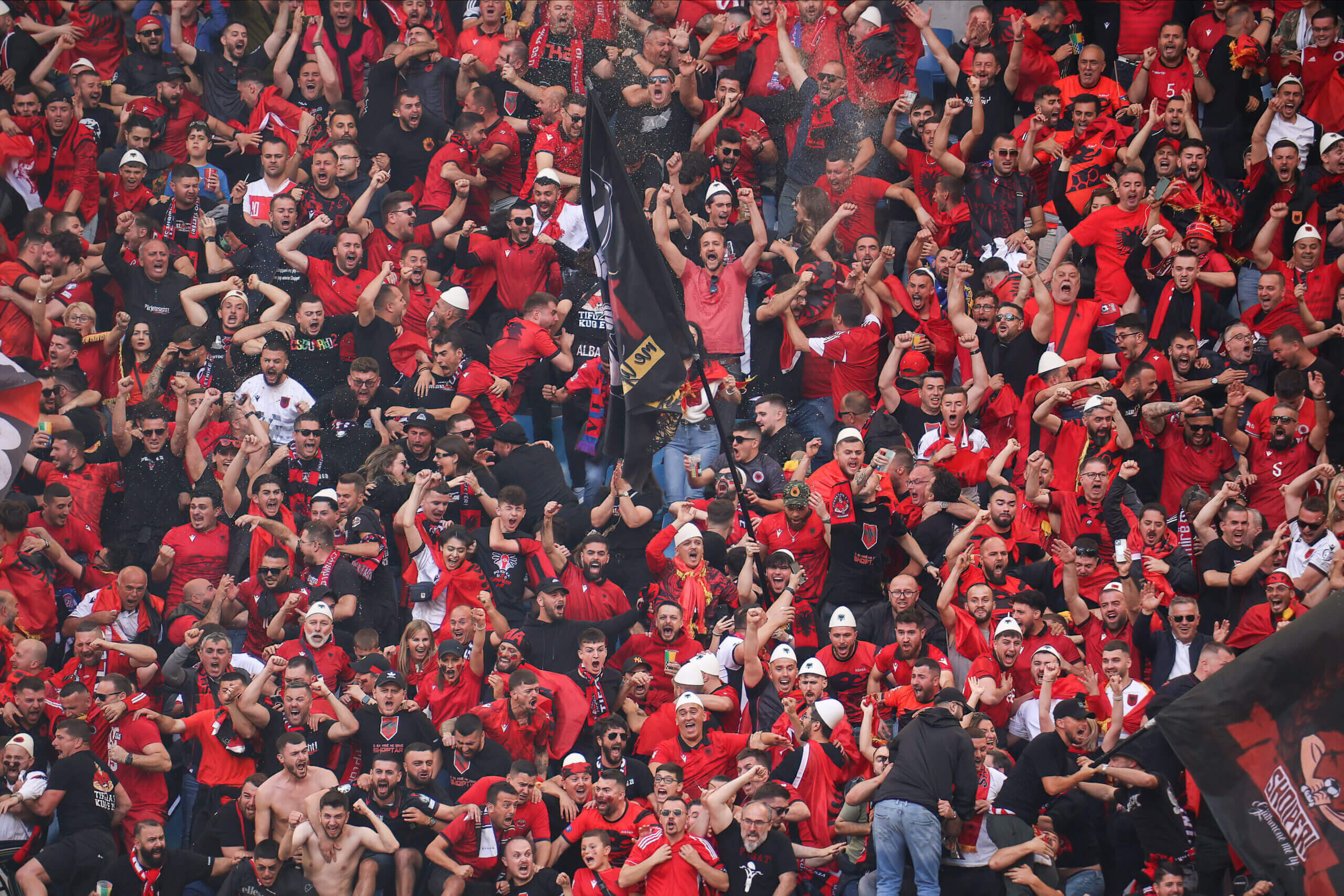Serbia has issued a stark warning that they may withdraw from Euro 2024 if UEFA, European football’s governing body, does not penalize Albania and Croatia for alleged anti-Serb chants by their fans. This controversy arose during their 2-2 draw on Wednesday, adding a layer of political tension to the already heated competition and potentially impacting Euro Uefa Standings.
The Football Association of Serbia (FSS) claims that fans from both Albania and Croatia were heard chanting “Kill, kill, kill the Serb” during the second half of their Group B match in Hamburg. This incident has prompted a strong reaction from Serbian officials, threatening to escalate beyond typical football rivalries.
Jovan Surbatovic, the FSS general secretary, expressed his outrage to Serbian state broadcaster RTS, stating, “What happened is scandalous and we will ask UEFA for sanctions, even if it means not continuing the competition.” His strong words underscore the seriousness with which Serbia is taking these allegations. “We are sure they will be punished, because (UEFA) has already responded to our appeal to remove the so-called journalist from Albania from the championship,” Surbatovic added, referencing a prior incident involving a Kosovan journalist.
This earlier incident involved a TV reporter from Kosovo who was seen making the double-headed eagle sign, a symbol associated with Greater Albania, towards Serbian fans during Serbia’s game against England on Sunday. This gesture, loaded with historical and political significance dating back to the break-up of Yugoslavia, has already resulted in the reporter being banned from the tournament for “misconduct.” The tensions between Albanians and Serbs are deeply rooted, and such symbols can quickly inflame passions.
 Albania faces UEFA scrutiny again for fan behavior at Euro 2024.
Albania faces UEFA scrutiny again for fan behavior at Euro 2024.
Albania’s Football Association is already facing repercussions from UEFA for the behavior of their supporters. They were fined nearly £32,000 after their opening game against Italy for several offenses, including throwing objects, setting off fireworks, a pitch invasion, and “transmitting a provocative message not fit for a sporting event.” This history of disciplinary issues adds weight to the current accusations.
Serbia themselves are not without past sanctions at this tournament. UEFA fined the FSS just over £12,000 due to their fans displaying a “provocative message” – a banner asserting Serbia’s claim over Kosovo – during their match against England in Gelsenkirchen. Additionally, seven Serbian fans were arrested following clashes with England supporters before the same game, and UEFA is investigating reports of racist chanting by Serbian fans during that match.
Despite these incidents involving Serbian fans, Surbatovic attempted to minimize them in his RTS interview. “We were punished for isolated cases and our fans behaved much better than the others,” he claimed. “One fan was punished for racist insults and we don’t want it to be attributed to others. We Serbs are gentleman and we have an open heart, so I appeal to the fans to remain gentlemen.”
The Croatian Football Federation, in contrast, has stated they are unaware of any racist or discriminatory chants from their fans during the game against Albania. This denial sets the stage for UEFA to investigate the conflicting accounts and evidence.
As Serbia prepares to play Slovenia in their second Group C match in Munich on Thursday, the threat of withdrawal looms large. The outcome of UEFA’s investigation and any potential sanctions against Albania and Croatia could significantly impact not only the tournament’s atmosphere but also potentially the Euro UEFA standings if Serbia were to follow through with their threat. The FSS and UEFA have been contacted for further comments, and the football world awaits their response as this controversy unfolds.
(Photo by Sergei Mikhailichenko/SOPA Images/LightRocket via Getty Images)
